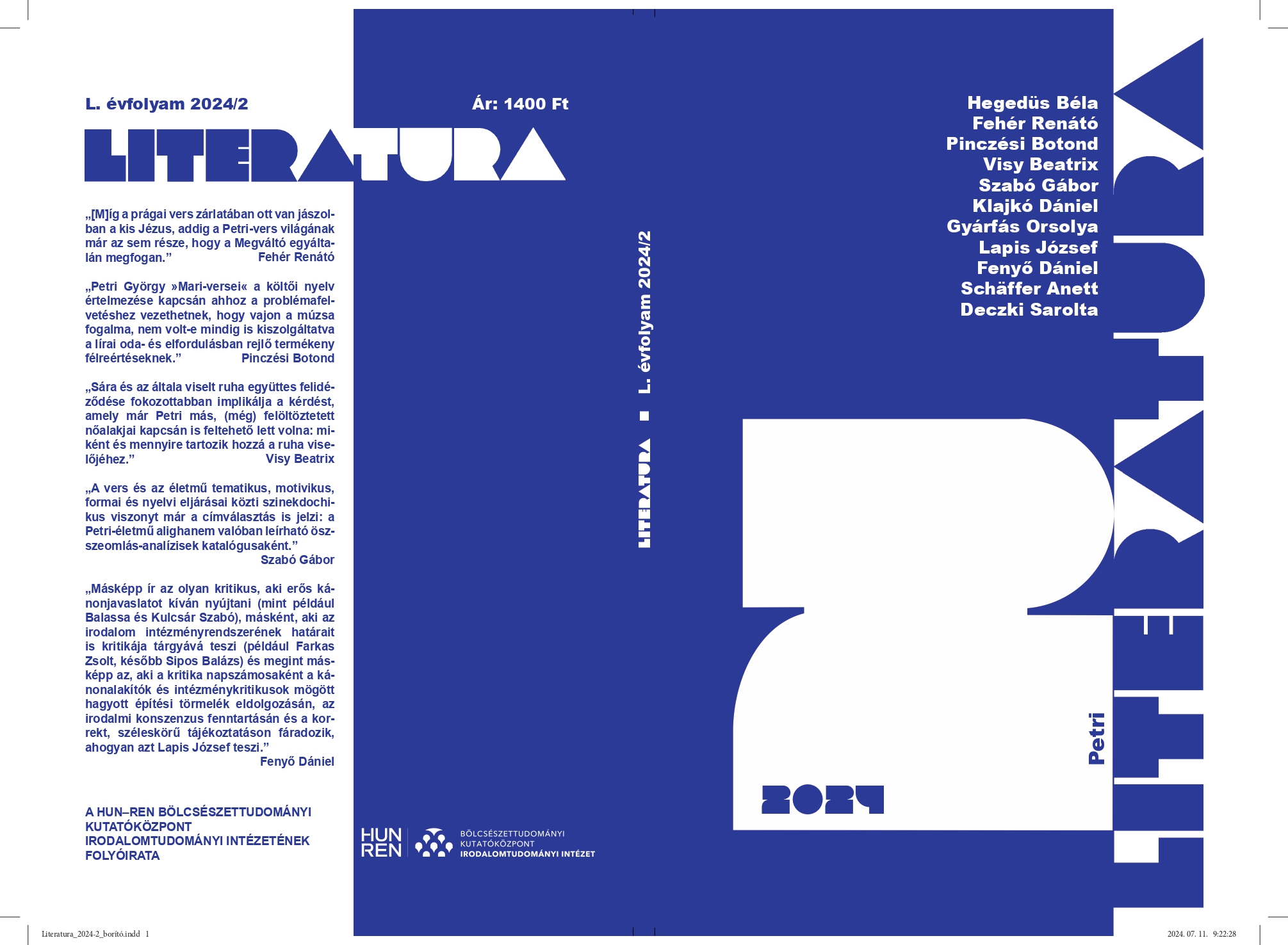Adomány és erőszak
Mészöly Miklós Koldustánc című novellájának ökonómiai szempontú olvasata
Absztrakt
Miklós Mészöly’s reception usually interprets Koldustánc [’Beggar’s Dance’] in the context of Albert Camus’s novel, The Stranger. This essay attempts to examine the narrative and poetic structure of Mészöly’s short story from the perspective of monetary economics. To do this, it first outlines the anthropological, ethical, psychological and economic aspects of the gift. These discourses draw attention to the asymmetry of the relationship between the donor and the recipient: the donor can always impose on the other the obligation to reciprocate. Giving the gift, therefore, can be seen as an implementation of power. In Koldustánc [’Beggar’s Dance’], Mészöly represents the subversion of this power relation. Contrary to the original model of donation, here it is the beggar who takes control over the relationship. The essay investigates this shift of power, and demonstrates the economy inherent within the short story’s system of tropes. Finally, the paper also decodes the semantic relationships of violence and terror that can be associated with the process of donation.



